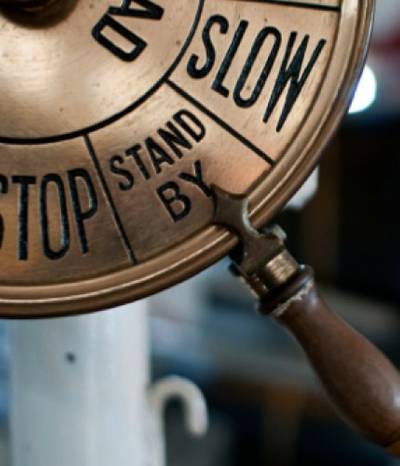Slow-Steaming Through a Legal & Insurance Minefield
The UK P&I Club’s publication ‘Hellas Hilights - Issue 28’ recorded Rod Lingard's attendance at the green4Sea Forum and his address on 'The Legal and Insurance Aspects of Slow-Steaming, excerpted as follows:
What’s the problem?
On one side the owner has an obligation to follow the charterer’s slow-steaming instructions under the charterparty yet on the other the owner has the usually implied obligation under the Bill of Lading to proceed with due dispatch. Due dispatch means the most direct route at the fastest speed. There is legal authority that an unreasonable delay is a deviation. A deviation in this respect is a departure from the contractually agreed voyage that deprives the carrier of the defences and rights of limitation that are usually available under The Hague or Hague Visby Rules.
Implications for cover
As many Members will be aware a [voyage] deviation has implications for P&I cover. There are also other insurance implications. Slow- steaming brings issues of, increased inspection, extra maintenance and crew training. It is possible that there may be problems with an insurance claim where there is an engine breakdown and there has been a history of slow-steaming. Depending on the policy wording then the hull underwriters may look at issues of deliberate or negligent mismanagement.
Similarly, in General Average, maintenance and training will come under close scrutiny as cargo look to avoid contributing their proportion of General Average by trying to show that the carrier has failed to exercise due diligence to make the ship seaworthy before and at the commencement of the voyage.
There is little case law in connection with slow- steaming
For example, in the PEARL C the owners chartered the ship on an amended NYPE form for 9-12 months. The charter-party contained a performance warranty that the ship was capable of steaming at about 13 knots in good weather conditions. It was common ground between the parties that the warranty only applied on delivery. The charterparty incorporated the Hague Rules and a London arbitration and English Law clause.
The charterers withheld hire alleging that there had been a breach of the utmost dispatch obligation under clause 8 and that the charterers could deduct lost time due to slow-steaming under the first part of clause 15.
The matter went to arbitration and the tribunal held that in respect of 3 out of 16 voyages there had been deliberate slow-steaming as that was the only reasonable explanation. The tribunal went on to find that there had been a breach of clause 8 and a net loss of time under clause 15.
The owners appealed arguing (1) that the tribunal had been in error by converting the performance warranty into a continuing warranty and (2) the Article IV Rule 2(a) Hague Rules Defence, “Error by the master in the navigation or management of the ship”, was available to them.
The matter went to the High Court and Popplewell J. held that there had been no error by the tribunal. The judge confirmed that it was appropriate to use the warranted speed as the benchmark against which to assess if the ship had proceeded with the utmost dispatch and in the case of a deliberate decision to slow-steam the error in the management of the ship defence was not available to the owners.
The full article is available at: http://www.ukpandi.com/knowledge/article/hellas-hilights-issue-28-129625/?dm_i=33T,21PCJ,CJJYUG,7DK6A,1
















